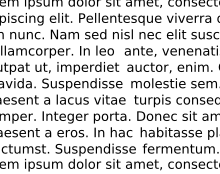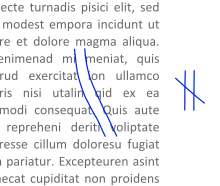this post was submitted on 22 Apr 2024
211 points (99.5% liked)
Today I Learned (TIL)
6556 readers
5 users here now
You learn something new every day; what did you learn today?
/c/til is a community for any true knowledge that you would like to share, regardless of topic or of source.
Share your knowledge and experience!
Rules
- Information must be true
- Follow site rules
- No, you don't have to have literally learned the fact today
- Posts must be about something you learned
founded 2 years ago
MODERATORS
you are viewing a single comment's thread
view the rest of the comments
view the rest of the comments


Typographers/Designers pay attention to all sorts of minor text details that the average person just cannot be bothered to care about. Like, a reader might have a sense that something feels “off” on the page, but they probably won’t quite know what it is. Or, if they do notice it, they’ll just go, “Huh, that’s funny,” and move on. With everything going digital now though, and having variable page sizes and such, there’s a bit less control for things like that for web & mobile stuff. It’s only print people that probably have to worry about that now.
The copywriters in my company stare at a landing page for hours and fix little word flow details.
I remember having to explain responsive design, since words can break on screen size. The old editors who worked on magazines were kind of annoyed. But fortunately, we have better css tools like clamp, and word break to control word flow. But honestly its easier to teach the copywriter how tech works.
Rivers caused by justified text are bad for those with dyslexia and present a website accessibility issue. Good developers avoid allowing users the option.
The thing that normal people don't worry about is "readability." Bad type is harder to read, for example rivers are distracting. Turning black marks on paper into concept, metaphor, irony, narrative, setting should be as painless of a process as possible so that the most people possible have access to reading and information. Little details like letter and word spacing, font, typeface add up to something that is either easy or difficult to read.